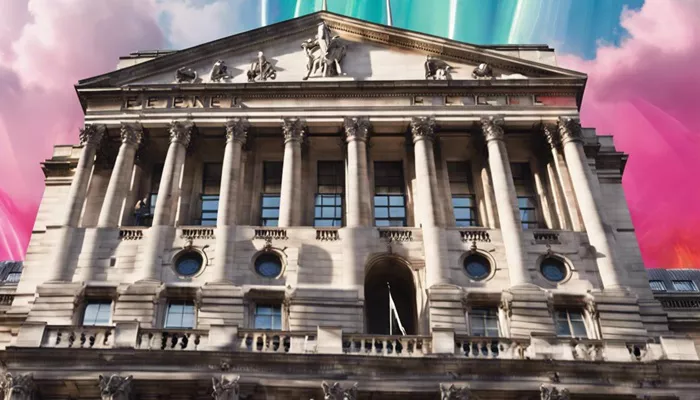The Bank of England (BoE) has lowered its key interest rate by 0.25 percentage points to 4.25%. The decision came on Thursday, amid global economic uncertainty, particularly due to U.S. President Donald Trump’s tariffs.
The BoE’s Monetary Policy Committee (MPC) voted 5-4 in favor of the rate cut. While most members supported the move, two members, Swati Dhingra and Alan Taylor, pushed for a more significant half-point reduction. Chief Economist Huw Pill and external member Catherine Mann, however, argued to keep rates unchanged.
The central bank noted that the rise in tariffs by the U.S. and other countries is expected to slightly dampen economic growth and reduce inflation in the UK. However, it emphasized the uncertain economic outlook.
Market Reaction:
-
Stock Markets: The FTSE 100 index gained 0.3% after the announcement.
-
Currency: The British pound strengthened against the U.S. dollar, rising 0.2% to $1.3320.
-
Bonds: Two-year gilt yields increased by 7 basis points, reaching 3.88%. Traders expect only a small chance of another rate cut in June and foresee a total of 57 basis points in cuts by the end of the year.
Expert Reactions:
Philip Shaw, Chief Economist at Investec:
Shaw noted that while the BoE’s decision to cut rates was expected, it was surprising that two members, including Huw Pill, preferred to keep rates steady. He predicted that another rate cut could happen in August, rather than in the immediate future.
Luke Bartholomew, Deputy Chief Economist at Aberdeen:
Bartholomew observed a divided stance within the MPC regarding how to respond to economic challenges. This division could make it difficult for the Bank to send clear signals about future policy direction. He stated that further rate cuts are likely later in the year, but policymakers need more data before taking action.
Andrew Wishart, Senior UK Economist at Berenberg:
Wishart found the split vote more hawkish than expected, with two members concerned about market expectations for aggressive rate cuts. Despite this, the BoE’s guidance suggests a cautious approach, ruling out faster cuts in the near future.
George Brown, Senior Economist at Schroders:
Brown suggested that while Trump’s tariffs may offer some relief through lower goods prices, the UK’s ongoing capacity constraints could lead to rising inflation later in the year. He predicted that the BoE would likely keep rates around 4% during this rate-cutting cycle.
Jeremy Batstone-Carr, Strategist at Raymond James Investment Services:
Batstone-Carr highlighted that although the BoE’s decision was expected, the Bank is signaling that further cuts are likely, though it may take until autumn before the Bank feels confident enough to ease borrowing costs again.
The Bank of England’s cautious approach to interest rate cuts reflects a complex and uncertain global economic environment, particularly with ongoing trade tensions and domestic challenges.
Related topics:


